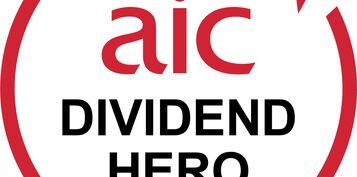Protect your income from inflation
David Prosser looks at how holding equity income investment companies could help drawdown investors.

David Prosser looks at how holding equity income investment companies could help drawdown investors.

As inflation continues to rise – to 15-year and 40-year highs in the UK and US respectively – one part of the population faces a particularly difficult time. Those in retirement whose benefits are not linked to inflation may see the real value of their investments – both capital and income – threatened by rising prices.
For those in drawdown plans, taking an income directly from their pension funds, the dilemma is particularly acute. Many such investors hold significant chunks of their pension savings in fixed-income assets, calculating that these are likely to generate the yield they need without worrying levels of volatility. The problem now is that while all asset classes are troubled by rising inflation, bonds are first in the firing line.
That’s for two reasons. First, the moderate returns that bonds typically deliver – in line with their moderate risk profile – are more easily outstripped by higher rates of inflation. And second, the income they pay is almost always fixed; inflation is typically associated with rising interest rates, which make that fixed income look less competitive.
This is not to suggest drawdown investors with a high bond content in their pension funds should suddenly do something dramatic; most economists expect the spike in inflation to be temporary and these higher rates are already priced into markets. Still, there is a broader lesson here – maybe bonds aren’t the ideal holdings for drawdown investors after all, or at least not for the lion’s share of their portfolios.
Instead, what about the humble equity income investment company as the mainstay of drawdown investors’ portfolios – particularly in the early years of their plans?
One attraction of such funds, compared to fixed-income assets, is the potential for stronger capital returns over time. That is obviously important in the context of maintaining a good base of assets from which to draw income throughout retirement – making your money last in other words – but it is also a reassuring thought in periods of higher inflation. Higher capital returns mean a greater chance that savings maintain their purchasing power.
However, it is the quality of the income stream on offer from the equity income sector that drawdown investors should really value. After all, what people need in retirement is a reliable source of income – the assurance that they’re not invested in assets where a dip income means they will suddenly find themselves short of cash with which to pay the bills.
Ordinarily, that’s not an attribute that people associate with equity investment. Since companies can – and do – cut their dividends at short notice, depending on a portfolio of equities to generate a reliable income carries some dangers.
Investment companies, however, are different. Uniquely among collective funds, they are allowed to retain some of the dividends they earn on their investments in order to build up a reserve fund. In years when their dividend income dips, they can then draw on these funds to maintain pay-outs to investors.
This is the practice that underpins the track record of the Association of Investment Companies’ dividend heroes – almost 20 funds that have increased their own dividend in each of the past 20 years (some of them have managed this every year for more than 50 years).
Beyond this eye-catching list, the broader value of revenue reserves is that they enable investment companies to smooth out the income they pay to investors. It explains why only a handful of equity income trusts had to reduce payouts to investors in 2020 and 2021, despite their dividend income collapsing in the face of the Covid-19 crisis.
Doesn’t that sound ideal for drawdown investors? They’re buying an asset class that provides the potential for superior long-term performance – and therefore greater protection from the ravages of inflation. But they’re also getting an investment that generates the income they now need from their savings, and does so in a secure and reliable way.
Drawdown savers’ exposure to bonds is understandable – for years, investors have been told they should be moving into lower risk assets as they get closer to retirement, let alone once they’re actually in retirement. The reality, however, is that bonds don’t necessarily provide the protection they might expect, as the current inflation scare is proving. The right type of equity investment may prove a much better option.






